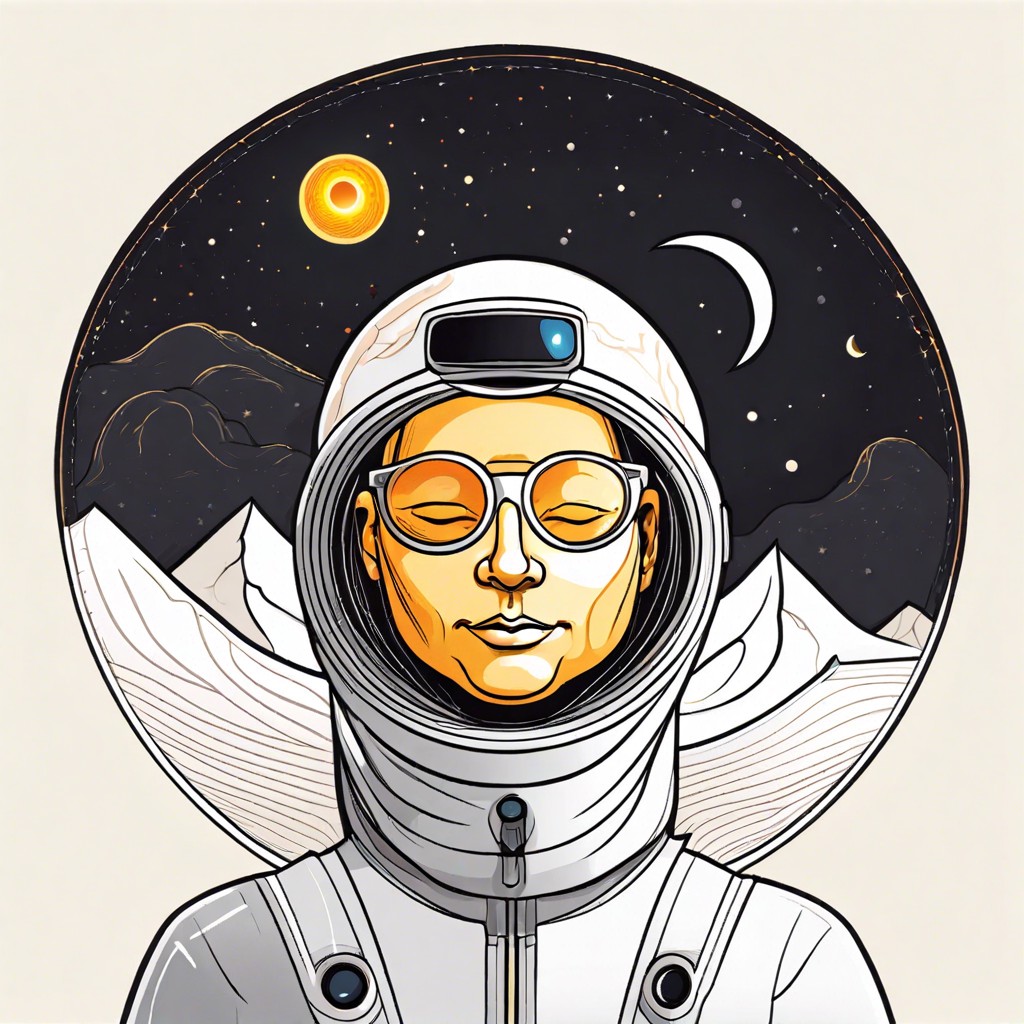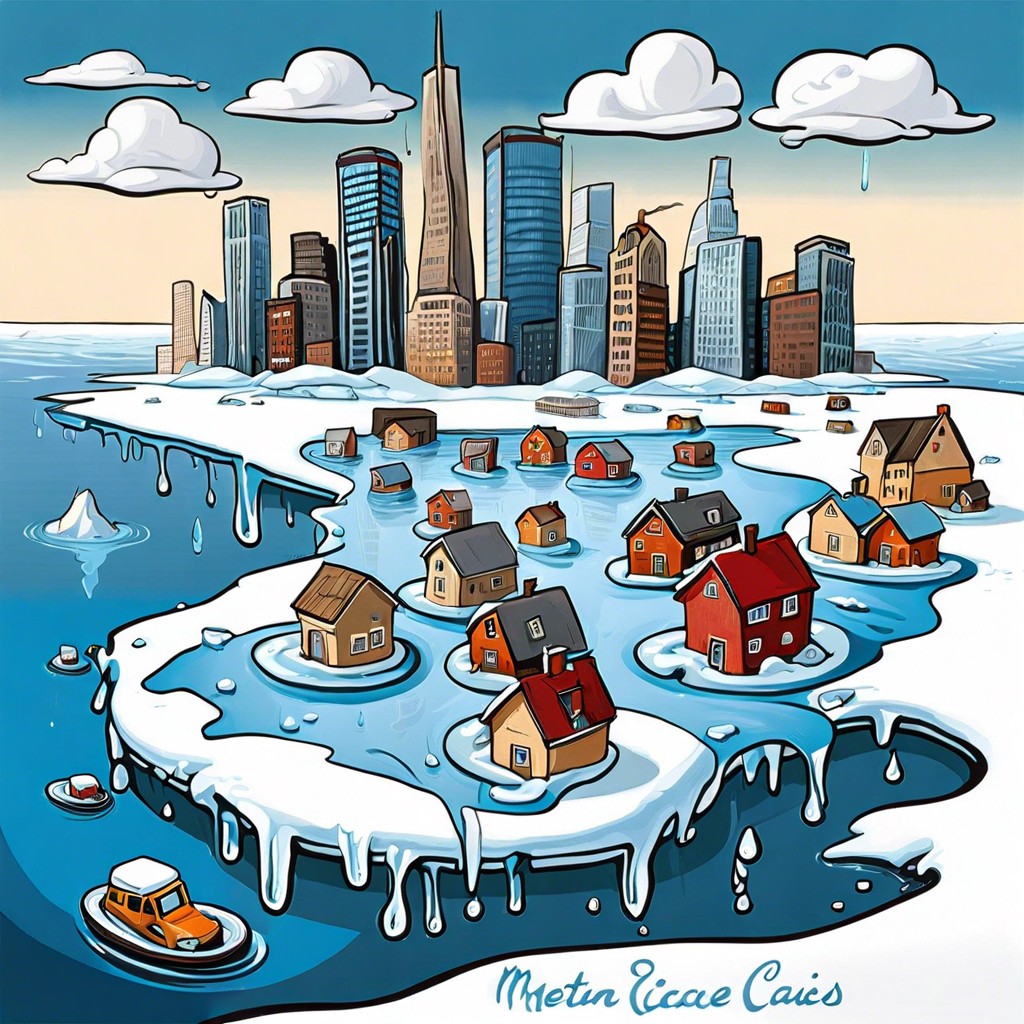Curious about what happens if you look directly at a solar eclipse?
Curious about gazing at a solar eclipse? Before you cast your eyes skyward, know this: immediate eye damage awaits, and that’s just the start. We’ll dive into the right protective eyewear, bust some myths, and explore long-term vision effects. Exposed your eyes by mistake? We’ll even cover emergency steps. Stick around; your vision will thank you!
Key takeaways:
- Staring at eclipse = instant eye damage
- Eclipse glasses: hero-grade eyewear
- Looking during eclipse = long-term vision effects
- Myths: sunglasses, peek-a-boo dangers debunked
- Emergency: close eyes, seek medical help
Immediate Eye Damage

Staring at the sun during an eclipse can scorch the retina faster than you can say “regret.” The blindness-inducing rays of UV and infrared light can cause solar retinopathy – a fancy term for retina damage. Imagine a sunburn, but on your eyeballs. Not cool.
Just seconds of exposure can bake those delicate cells. Think: retinal microwave.
Oddly enough, you won’t feel anything. No pain, no burning. Just silent, sneaky eye sabotage. The damage, however, can be permanent, affecting central vision and leaving you with a lifelong reminder that curiosity torched your cat-like vision.
Remember: your eyes are not solar panels. They’re not meant to soak up all that Vitamin D.
Types of Protective Eyewear
Let’s get one thing crystal clear: those flimsy sunglasses lounging in your beach bag? Yeah, they’re not going to cut it. When it comes to watching a solar eclipse without frying your retinas, you need some real hero-grade eyewear.
First up, eclipse glasses. They look like flimsy 3D movie glasses but don’t be fooled. These bad boys are equipped with specialized solar filters that block out harmful rays. Make sure they’re ISO 12312-2 certified. Anything less and you’re just inviting trouble.
Next, welders’ goggles. Yes, you heard right. But not your Dad’s old pair collecting dust. Only specific ones work; make sure to use a shade number 14 filter.
If you’re feeling fancy, go for a solar viewer. Think of it as a small, personal telescope designed just for this celestial event. These come with the proper filters to keep your peepers safe.
Lastly, if you have some scientific ambitions or just love DIY projects, a pinhole projector works wonders. It’s the safest method since you’re not looking directly at the eclipse.
So ditch the inadequate eyewear, gear up properly, and enjoy the show without risking a trip to the ophthalmologist.
Long-term Vision Effects
If you dared to sneak a peek during a solar eclipse without proper protection, congrats. You’ve joined the club nobody wants to be in. Long-term vision effects after such a risky endeavor can be quite an eye-opener (pun totally intended).
Firstly, there’s solar retinopathy, where your retina becomes the unwilling victim. Think of it as a sunburn, but for your eyeballs. No sunscreen can save you here, folks.
Then there’s the fun phenomenon of macular degeneration. Enjoy those blurry central visions; it’s like having a permanent smudge on your camera lens.
And if you’re really lucky, you might experience a permanent blind spot. Try explaining that quirk at your next eye exam.
All these conditions can seriously mess with your ability to read or recognize faces. Or you know, just see in general. Doc’s orders: Keep those eclipse glasses handy. Your future self will thank you, no smudging required!
Myths Vs. Facts
Let’s tackle the juicy myths. One popular whopper is that looking at a solar eclipse isn’t any more dangerous than staring at the sun on a regular day. Well, that’s like saying swimming with sharks is just a more intense version of bath time.
Another favorite: sunglasses can substitute for eclipse glasses. Celebrities might pull off shades indoors, but they’re not cutting it for protecting your peepers from the eclipse. You need proper solar viewers with ISO certification; anything less is like using a spaghetti strainer to scoop up water.
Ever heard that it’s safe to peep at an eclipse during maximum coverage? Just because the sun’s playing peek-a-boo doesn’t mean it’s safe. Even a tiny sliver of sunlight can cause irreversible damage, faster than you can say “Nope!”
Then there’s the old “it’s only for a second” argument. Sure, but that’s all it takes. Think of it like sticking your hand in boiling water, even a quick dip is going to leave a mark. Cheers to keeping those eyes safe and myths busted.
Emergency Steps If Exposed
First things first: Stay calm. Panicking won’t help your eyes.
Close your eyes or cover them with your hands to block out additional light. This can prevent further damage.
Seek medical attention pronto. An eye care professional can assess the extent of any harm.
Use lubricating eye drops. These can soothe dryness or irritation.
Avoid rubbing your eyes. Seriously, just don’t. It can make things worse.
Keep note of any symptoms. Write down what you’re experiencing; this helps your doctor provide better care.
Remember, your vision is precious. A little caution and quick action can save the day.




